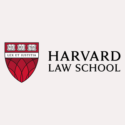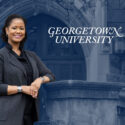“The battlefield is everywhere; there is no sheltered rear.”
– Paul Robeson (Duberman, 2006)
America is said to be the land of opportunity, a place where the poor, the despondent, and the oppressed can lay down their burdens and start anew in the land of milk and honey. However, this well-known platitude has not been a reality for all in America; as we live in a country rife with numerous forms of inequity and inequality in which, access to better opportunities (e.g., higher education, affordable healthcare, and economic mobility), are blocked due to one’s racial/ethnic identity. For example, the idea of America as the land of the free and the home of the brave is a bit disingenuous, particularly concerning the African American experience in this country. In which African Americans have endured legal segregation, social degradation, political disenfranchisement, and economic exploitation while fighting to be recognized and treated not just as citizens but also as human beings in a society that objectifies the Black body as a threat to the American social order.
This idea of Blackness as a threat to American society has manifested itself in a myriad of ways since the aftermath of Bacon’s Rebellion, mostly, in the realm of education as African Americans were legally barred from being able to read and write. Nevertheless, the African American struggle for education arguably reached its zenith during the Reconstruction era’s quest to build Black educational institutions, most notably Historically Black Colleges and Universities (HBCUs), due to the belief that quality education for African Americans was tantamount to freedom. These efforts showed that African American’s pursuit of literacy, and subsequently, education came from a belief that education was how you asserted yourself as a free person, how you claimed your humanity. This belief speaks to the widely-used African American proverb that knowledge is power. With knowledge and education, African Americans could liberate themselves from oppressive conditions, while also helping the less fortunate amongst them.
Moreover, the Civil Rights Movement, a broad social effort led primarily by African Americans to end racial segregation and discrimination in the U.S., was a multifaceted movement with a primary aim to secure legal recognition and federal protection of the citizenship rights enumerated in the constitution and federal law for African Americans. The movement successfully fought for and achieved commendable expansions in economic and employment opportunities; however, this expansion also coincided with the dwindling of prospective African Americans students attending HBCU’s due to legal and de jure segregation being dismantled. Additionally, this move coincided with the athletic interests of historically White institutions (HWIs). These perceived and actual athletic setbacks, included Texas Western College (now known as the University of Texas at El Paso) all-Black starting lineup, a first in NCAA history, winning the 1966 NCAA champion against Adolph Rupp’s all-White Kentucky team, and the racially integrated University of Southern California football team’s 42-21 victory over the all-White University of Alabama team on September 12, 1970, at Legion Field in Birmingham, Alabama. These setbacks led to the wholesale recruitment of African American athletes at HWIs, subsequently leading to the rise in African American student enrollment at HWIs, causing many in the civil rights community to conclude that African Americans now had equal access to higher education in America.
I argue that such a sentiment is short-sighted and politically immature, to say the least, as HWIs rake in millions, sometimes even billions of dollars in annual revenue exploiting the athletic labor of Black athletes. This revenue leads to the hiring of prestigious faculty, newer buildings on campus, increased research capacity and prestige, and larger endowments for said institutions. HBCUs have been unable to keep pace in the arms race for Black athletic talent, leading many HBCU’s to struggle to stay afloat due to cuts in state and federal funding.
Furthermore, higher education in America is believed to be “a special, deeply political, almost sacred, civic activity.” However, despite expanded access to HWIs, African American student college opportunities continue to be limited by structural disadvantages and systematic racism. Moreover, legal incrementalism and failures to adequately implement and enforce equity-based policies have limited the participation of African Americans in higher education. Thus, I argue that the educational system in America has historically been a site of antiblackness,* under which African American children suffer from “(mal)distribution of material resources,” struggle against harmful ideologies, and representations and endure physical and psychic assaults. These anti-Black perspectives have led to African American student enrollment, college degree attainment, and economic advancement to decline. Such a trend puts the African American communities’ future in dire straits, as we live in an ever globalizing world in which higher education credentials play a vital role in procuring economic mobility, and social-cultural capital, in a world where racial groups compete for scarce resources.
Thus, antiblackness must be forcibly contested not only in higher education but in all areas of human activity; this can be done by “closing ranks” in the African American community to exclusively focus on issues that are pertinent and bring potential harm to the growth, development, and holistic wellness of the African American community. I argue this can be done through the concept of the alienated revolutionary. The alienated revolutionary is one who is cynical about existing power structures but argues that progressive change can only take place via the use of calculated acts. The stance of the alienated revolutionary constitutes an active refusal to work within white power structures. It is a decision to emphasize Black solidarity and to assert oneself in terms of this solidarity. Black self-assertion can make use of the instruments of democratic action and economic self-sufficiency. The alienated revolutionary can also take other forms such as that of the “alienated” statesman, diplomat, and professional. Thus, Black institutional agents (faculty and staff) can prescribe points of intervention if properly channeled in a nuanced, race-first form. In doing so, Black institutional agents must use their positions of power and influence to create legitimate spaces of power for Black people to build, develop, and maintain rather than only criticize, deconstruct, and destroy.
*Michael Dumas and kihana ross argued in 2016 that, “antiblackness is not simply racism against Black people. Rather antiblackness refers to a broader antagonistic relationship between Blackness and (the possibility) of humanity.












I think the issues are way more complex than what you posit as anti-blackness in the land of milk and honey. There is a side of the equation that we are solely responsible for.
Great reply. Exactly and simply stated.
Kudos on this outstanding piece, Bakari Lumumba.
You really hit the mark.
Keep on keeping on!
Sincerely,
Jim Johnson
As far as I know, the money that athletic departments make does not go to the school to fund research. It is retained by the athletic department to improve infrastructure and it is used to subsidize women athletics.
Your excellent work could lead to examination of something I see as the “weaponization of white higher education institutions” targeting Black communities with gentrification, experimentation, and denigration through labeling and usurping our agency in creating our own narrative. Most of the negative labels we have been slapped with have come from the higher education/research environments; such as underprivileged, underserved, disadvantaged, underachieving, dysfunctional, etc. ad nauseum. We should look at how many of these institutions are taking over large portions of Black communities in gentrification processes. I can name 4 without doing any research. In the mean time the TWI students are getting their Doctorates studying what they identify as Black dysfunction.
Excellent point, Olabisi.